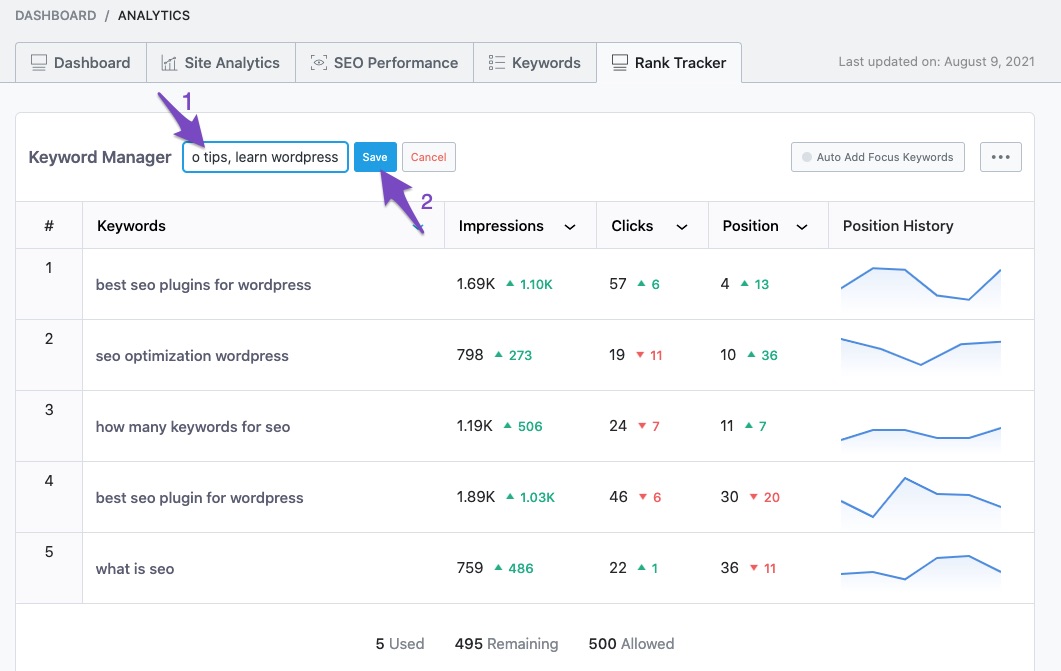The Ultimate Guide To Keywords Tracker: Unleashing The Power Of SEO
Google Keywords Tracker for Your SEO Strategy Rock Content
In the ever-changing landscape of digital marketing, the ability to track and optimize keywords is a crucial skill for businesses and content creators. A keywords tracker is a tool designed to monitor the performance of specific keywords across various platforms, providing invaluable insights into search engine optimization (SEO) strategies. By understanding how your keywords are performing, you can refine your content, improve your rankings, and ultimately drive more traffic to your website. With the right keywords tracker, you can stay ahead of the competition and ensure your content resonates with your target audience. Keywords trackers offer a comprehensive overview of keyword performance, highlighting trends, competition, and opportunities for improvement. These tools analyze search engine results pages (SERPs) and provide data on how often your website appears for specific keywords, how it ranks, and how these rankings change over time. By leveraging this information, you can make informed decisions about which keywords to target, how to optimize your content, and where to focus your marketing efforts. This data-driven approach not only enhances your SEO strategies but also increases your chances of reaching a wider audience and achieving your business goals. As we delve into the world of keywords trackers, we'll explore the various features and benefits they offer, the different types available, and how to select the right one for your needs. We'll also discuss best practices for using these tools effectively, common challenges you may encounter, and how to overcome them. Whether you're a seasoned SEO professional or just starting in the field, understanding how to utilize a keywords tracker can significantly enhance your digital marketing efforts and help you stay competitive in the ever-evolving online marketplace. 1. Understanding Keywords Tracker 2. The Importance of Keywords in SEO 3. How Keywords Tracker Works 4. Types of Keywords Trackers 5. Features of an Effective Keywords Tracker 6. Selecting the Right Keywords Tracker for Your Needs 7. Implementing Keywords Tracker in Your SEO Strategy 8. Best Practices for Using Keywords Tracker 9. Common Challenges and Solutions 10. Advanced Techniques with Keywords Tracker 11. The Future of Keywords Tracking 12. FAQs about Keywords Tracker 13. Conclusion


